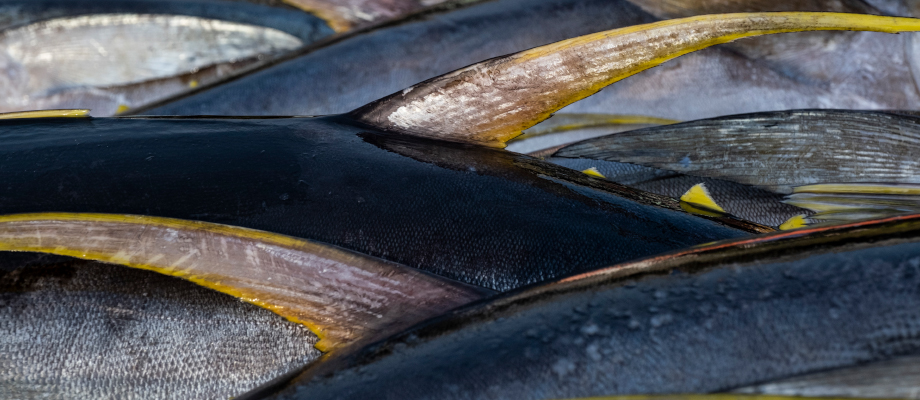Side event shines spotlight Common Oceans Tuna Project’s work in the Pacific
5 December 2023

© FAO/Veejay Villafranca
Rarotonga, Cook Islands -- A side event was held during the 20th Regular Session of the Western and Central Pacific Fisheries Commission (WCPFC) in the Cook Islands today. The event delved into the Common Oceans Tuna Project's multifaceted agenda, showcasing its contributions to sustainable tuna fisheries in the Western and Central Pacific Ocean.
The Project’s Manager, Kim Stobberup, emphasized its focus on promoting the sustainability of tuna fisheries. Technical aspects were explored through sessions led by partners, covering capacity building for developing harvest strategies, establishment of fishery improvement projects and modeling the effects of climate change on tuna fisheries, among other activities.
Developing harvest strategies for all major stocks is an ongoing process in the WCPFC that requires participants have a good understanding of the various steps involved. The Ocean Foundation, a partner in the Tuna Project, will provide capacity building for stakeholders and technical support to ongoing processes, thus strengthening the dialogue between scientists and managers, which is crucial for it to advance.
As an example of a collaboration between private sector and civil society to promote sustainable fisheries, the Marine Stewardship Council will support the establishment of Fishery Improvement Projects in developing Pacific Island countries. This is an example of creating market incentives for sustainable fisheries.
Recognizing the threat of climate change, the Pacific Community (SPC), a partner of the Tuna project, presented on the modeling to be undertaken to better understand the effects of climate change on the tuna resources in the Pacific Ocean. The Pacific Community’s, Dr Hau Halafihi, emphasized the important opportunity the tuna project provided to build on the foundations laid by previous climate change initiatives that were undertaken with support provided by FAO.
The work highlighted the high risk of redistribution of tuna biomass to areas outside of the exclusive economic zones (EEZs) of Pacific Island Countries and Territories, if greenhouse gas emissions continue to be emitted at the current rate. Reduced revenue derived from the sale of tuna access fees due to tuna redistribution will have devasting impacts on many Pacific Island economies said Dr Halafihi. The new work will improve the resolution of the projection to better understand current and future impacts within EEZs, including the development and testing of suitable indicators, contributing to the ongoing process of incorporating climate change considerations into the management and conservation of fisheries and ecosystems in the Pacific.
As the Cook Islands takes the stage as the host, the Common Oceans Tuna Project aligns its mission with the Commission's agenda, addressing ongoing issues. The 20th WCPFC session sets the backdrop for this unique platform for collaboration, innovation, and knowledge sharing, reaffirming the project's commitment to a transformative partnership on a global scale.
About WCPFC
The Western and Central Pacific Fisheries Commission (WCPFC) is one of five global tuna regional fisheries management organizations, responsible for the conservation and sustainable use of highly migratory fish stocks, particularly tuna, in the Western and Central Pacific Ocean. Established in 2004, the WCPFC comprises 34 member countries and territories, and seven cooperating-non-members dedicated to promoting the sustainable management of the world’s largest tuna fishery.
About the Common Oceans Tuna project
The Common Oceans Tuna project brings together a global partnership dedicated to sustainable tuna fisheries aiming to advance responsible tuna fisheries management and biodiversity conservation in areas beyond national jurisdiction (ABNJ). Funded by the Global Environment Facility (GEF) and led by the United Nations Food and Agriculture Organization (FAO), it works in collaboration with five regional tuna fisheries management organizations, intergovernmental organizations, the private sector, and civil society.
